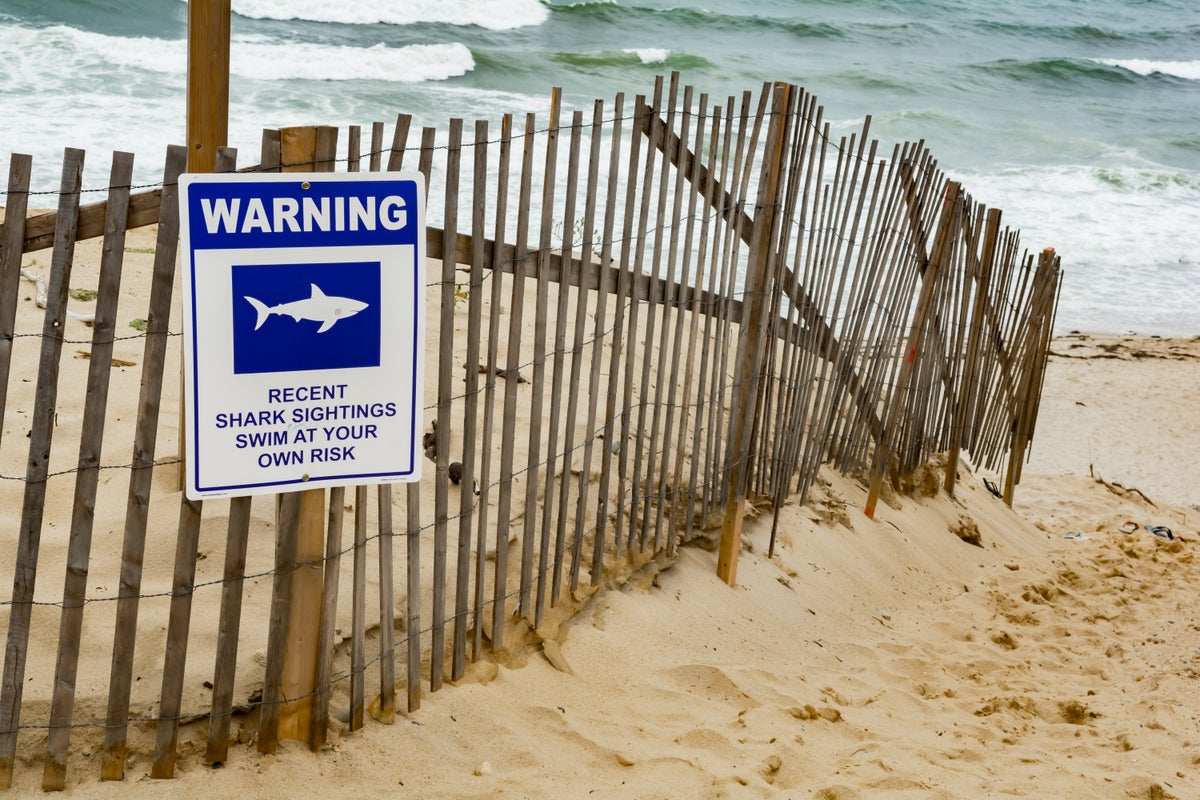
A popular beach in the Spanish island of Majorca has been evacuated after an animal, initially thought to be a shark, ravaged a tourist’s leg.
An Italian woman, 85, rushed out of the water with a bloody gash on her left calf at Palma beach around 11.30am local time on Tuesday, local media reported.
Two ambulances swiftly arrived and treated the woman at the scene, before she was rushed to a private clinic with skin loss and a severe wound. The incident took place at the Balneario 6 section of the beach.
Police said her muscle tissue was not harmed but her skin had been ripped off.
Lifeguards evacuated the beach and conducted a deep search to find the responsible animal using boats. Local environmental councillors supported the search, local media said.
The animal was not found so lifeguards restored the green flag about an hour later.
Initial reports suggested a shark was responsible but analysis of the bite, which had no teeth marks, suggested it was a bluefish instead.
“Our hypothesis is that the attack may have been caused by a bluefish,” marine biodiversity expert Aniol Esteban told local press based off photos.
The bluefish is a large and predatory fish with a powerful jaw. It is often found in the Mediterranean during hotter months.
The species is not known to regularly attack humans but it can be aggressive when it is feeding or feels threatened.
Environmental changes and increasing water temperatures are also believed to push some marine species closer to the shore.
Experts have also suggested a triggerfish could have been responsible. Triggerfish have an aggressive bite and are increasingly prevalent in Balearic shores.
It comes after a man died after a shark attack off the Mediterranean coast of Israel in April.
The remains, discovered after a two-day search, were identified as those of the victim, whom Israeli media named as Barak Tzach, a man in his 40s and a father of four.
The number of shark bites recorded around the world last year is markedly down from 2023, according to The Florida Museum of Natural History’s International Shark Attack File database.
In 2024, there were only 47 unprovoked attacks, down by 22 from the previous year and well below the 10-year average of 67.
